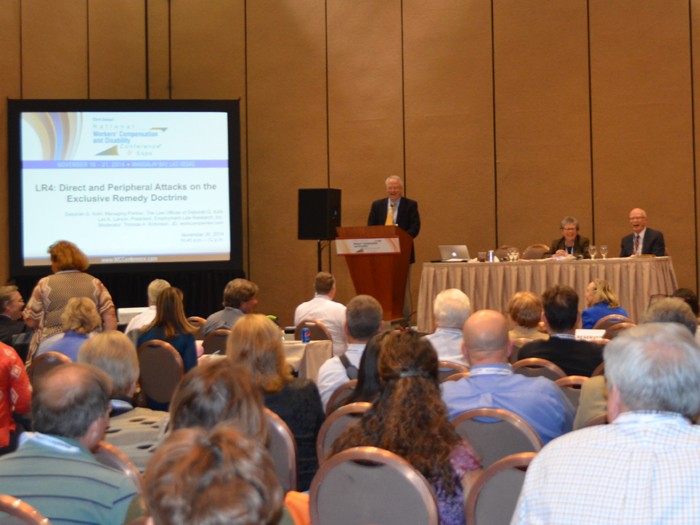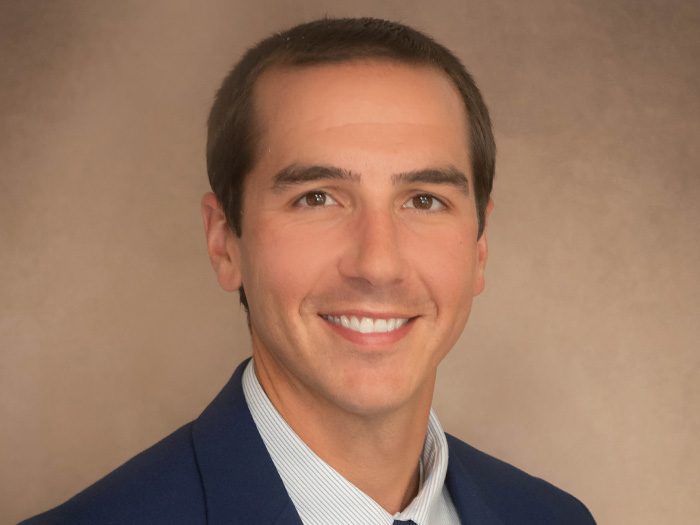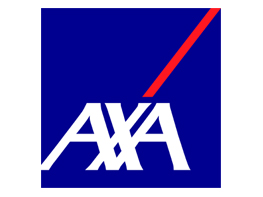Want to Speak at NWCDC 2019? Here’s Some Presentation Inspiration

The team that selects speakers for the National Workers’ Compensation and Disability Conference & Expo announced some topics they would like to see presented during 2019’s event in Las Vegas.
Workers’ compensation and non-occupational disability management professionals wanting to speak during the 28th Annual NWCDC might review the ideas generated by the team to see whether those topics match your area of expertise. If so, consider submitting a request for proposal describing your related presentation concept.
But NWCDC’s speaker decision process is not limited to choosing only from among topics the selection team generated. Potential speakers are encouraged to apply their own creativity and expert knowledge to submit additional presentation ideas. The selection group understands that there are many great ideas beyond its own.
February 22 is the deadline for submitting RFPs. The event will be held November 6 through 8, 2019 at Mandalay Bay in Las Vegas. You can submit your ideas via this NWCDC web page.
Submitting multiple RFPs is acceptable. Doing so increases your chances of being selected to present and can help distinguish your proposals when NWCDC receives multiple RFPs containing the same general topic idea. For instance, we can only select a limited number of presentations discussing pharmacy management.
So if you desire to speak on pharmacy management, for example, you might submit an RFP on that topic in addition to RFPs on other workers’ comp and non-occupational disability management subjects.
Presentation proposals can focus on new, innovative strategies that reduce injuries and costs. But risk managers, workers’ comp managers, and disability managers are also welcome, for example, to share their experiences with implementing tried-and-true practices at their companies.
In choosing topics and speakers the selection committee prefers presenters offering practical solutions that help workers’ comp and disability claims payers and managers resolve difficult and commonly-faced challenges. While we place emphasis on presentations with practical solutions, there is also room for discussions that enlighten on current trends impacting workers’ comp and disability management.
NWCDC prioritizes proposals that include employers as a presenters. We have learned that our attendees prefer to hear case studies presented by employers that have adopted successful strategies rather than sales pitches offered by service providers.
We also understand, however, that not all presentations can include an employer speaker and we value the knowledge and information that other workers’ comp professionals serving the payer community bring to the conference.
Presentation proposals can focus on new, innovative strategies that reduce injuries and costs. But risk managers, workers’ comp managers, and disability managers are also welcome, for example, to share their experiences with implementing tried-and-true practices at their companies.
This year’s NWCDC selection committee includes Denise Algire, director managed care corporate risk at Albertsons Companies; John Smolk principal manager, workers’ compensation and disability management, Southern California Edison; Dan Reynolds, editor-in-chief at Risk & Insurance; and Roberto Ceniceros, NWCDC chair.
Potential presentation topic proposals that NWCDC’s speaker selection committee is eager to evaluate and select from include:
- How do you know your workers’ comp program is working well and how do you measure its success? This could be a great session for a couple of employers and a consultant.
- Americans With Disabilities Act information and strategies from a disability management and program operations perspective. Not from an attorney’s legalese perspective.
- ADA, FMLA and work comp intersections. Recognizing when employees are asking for accommodations.
- The latest on post offer employment testing and EEOC challenges.
- Claims examiner education. Developing a strategic mindset for medical causation and the mechanism of injury. Best practices for medical causation. The ideal presenter for this session may be medical professionals or a veteran claims administrator.
- MSA strategies for satisfying CMS. This should not be an MSA 101-class, but the updating of current information with strategies to mitigate MSA burdens.
- Best practices in clinical care for one or two of work comp’s most common injuries. This session should help claims payers understand when aggressive or passive treatment strategies are best and help employers develop better claims-handling instructions.
- Leveraging medical care centers of excellence to improve injured worker outcomes. This session should include an employer that has used a center of excellence to improve their claims experience.
- Connecting pre-loss and post-loss data. Provide the example of an employer successfully improving work comp outcomes by connecting safety data to claims management.
- Analytic tools for improving-litigation management outcomes.
- The latest on wearables and safety.
- Obtaining optimal outcomes with prescriptive analytics developed to meet workers’ comp challenges, such as those presented by medical management.
- How to bring electronic medical records into claims management.
- Management strategies for breaking down corporate silos to connect workers’ comp and safety.
- What do employers need to consider when improving their medical-marijuana policies.
- Total worker health and leveraging wellness. We would like an employer with a proven program to present on this.
- How to leverage the company’s employee assistance program and other services existing outside of workers’ comp.
- Current trends in the litigation of cumulative trauma and apportionment.
- Program management for aging bodies and how do you move aging workers away from physical roles into advisory roles or less physical duties.
- Talent hiring and retention strategy. How do you apply workers’ comp and disability program claims management and customer service practices to retain both injured workers and claims management staff.
- Workplace violence -perhaps training employees to be proactive and anticipate problems. Consider employers other than retailers such as companies that hire drivers. Being aware of surroundings. On security, to arm or not arm.
- How do you work with your TPA and other vendors? How can an employer put their internal team together, hire and train, to properly manage and interact with the TPAs and other service providers. How do you build that team for the best collaboration?
- When is the claims investigation worth the cost and effort? When is it the best and proper use of resources and when is it overutilization? Are you needlessly dogmatic about the need for investigating claims?
- How do claims staff grow to become great program managers?
- How do you help employees suffering from PTSD after witnessing a catastrophic accident or experiencing workplace violence?
- Disaster recovery and the potential threats employers need to concern themselves with. This is not a documents recovery topic but an alert on the potential breaches, catastrophes and threats.
- New interventions, treatments and advanced medical solutions for traditional workers’ comp injuries.
- Workers’ comp service consolidation and M&A deals, what is the price employers are paying for these? Is the consolidation making the market more competitive or increasing pricing? What’s it doing for service levels?
- How do you leverage or build medical provider networks for better claims outcomes and better future MSA results?
- How do you leverage subrogation tactics for the best results?
- Case study examples of unions and employers working together to build successful workers’ comp programs. What strategies did the employer pursue? This session would require representatives from both sides.
- Return to work from an employers’-implementation perspective.Also, what are the doctor’s and insurer’s roles? Whose job description do you believe the employee or employer? What to do if the employer does not have a functional description for the injured worker’s tasks or if that description is not up to date.
The speaker proposal application can be found here.








